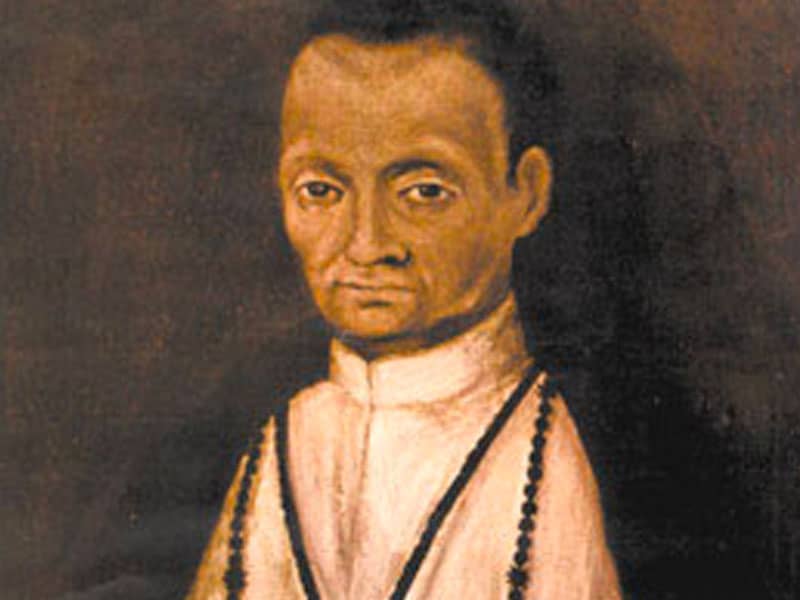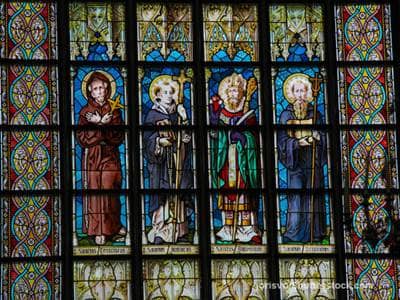St. Martin de Porres (1579-1639)

"Father unknown" is the cold legal phrase sometimes used on baptismal records. "Half-breed" or "war souvenir" is the cruel name inflicted by those of "pure" blood. Like many others, Martin might have grown to be a bitter man, but he did not. It was said that even as a child he gave his heart and his goods to the poor and despised.
He was the illegitimate son of a freed woman of Panama, probably black but also possibly of Native American stock, and a Spanish grandee of Lima, Peru. He inherited the features and dark complexion of his mother. That irked his father, who finally acknowledged his son after eight years. After the birth of a sister, the father abandoned the family. Martin was reared in poverty, locked into a low level of Lima’s society.
At 12 his mother apprenticed him to a barber-surgeon. He learned how to cut hair and also how to draw blood (a standard medical treatment then), care for wounds and prepare and administer medicines.
After a few years in this medical apostolate, Martin applied to the Dominicans to be a "lay helper," not feeling himself worthy to be a religious brother. After nine years, the example of his prayer and penance, charity and humility led the community to request him to make full religious profession. Many of his nights were spent in prayer and penitential practices; his days were filled with nursing the sick and caring for the poor. It was particularly impressive that he treated all people regardless of their color, race or status. He was instrumental in founding an orphanage, took care of slaves brought from Africa and managed the daily alms of the priory with practicality as well as generosity. He became the procurator for both priory and city, whether it was a matter of "blankets, shirts, candles, candy, miracles or prayers!" When his priory was in debt, he said, "I am only a poor mulatto. Sell me. I am the property of the order. Sell me."
Side by side with his daily work in the kitchen, laundry and infirmary, Martin’s life reflected God’s extraordinary gifts: ecstasies that lifted him into the air, light filling the room where he prayed, bilocation, miraculous knowledge, instantaneous cures and a remarkable rapport with animals. His charity extended to beasts of the field and even to the vermin of the kitchen. He would excuse the raids of mice and rats on the grounds that they were underfed; he kept stray cats and dogs at his sister’s house.
He became a formidable fundraiser, obtaining thousands of dollars for dowries for poor girls so that they could marry or enter a convent.
Many of his fellow religious took him as their spiritual director, but he continued to call himself a "poor slave." He was a good friend of another Dominican saint of Peru, Rose of Lima.
-
St. Pacifico of San Severino (1653-1721)
-
St. Conrad of Piacenza (1290-1350)
-
St. Francis Solano (1549-1610)
-
St. Ignatius of Antioch (d. 107?)
-
Sts. Peter and Paul (d. 64 & 67)
-
St. Margaret Mary Alacoque (1647-1690)
-
St. Claude la Colombière (1641-1682)
-
St. John Eudes (1601-1680)
-
Our Lady of Lourdes
-
St. Rose of Lima (1586-1617)


